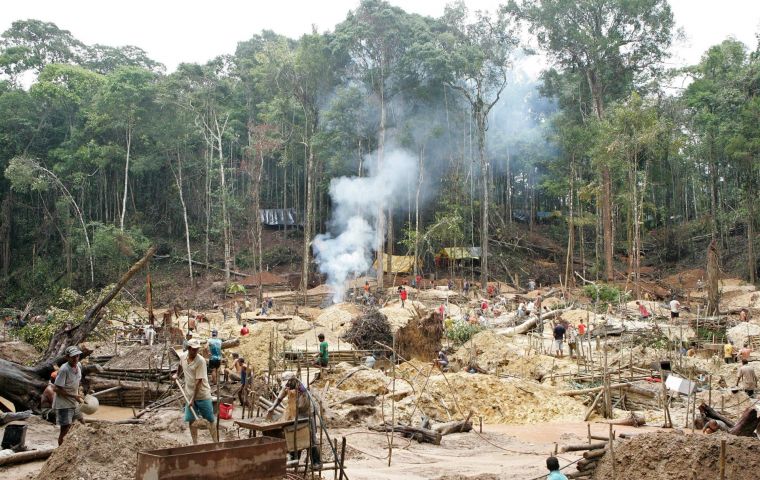
BRASILIA, March 11 (NNN-MERCOPRESS) — Groups of native Brazilians are to appear before the Human Rights Council of the United Nations (UN) in Geneva to condemn the increase of illegal mining and violence in their communities, including death threats, raids, and forced displacements, the Missionary Indigenous Council (CIMI) announced.
Indigenous leaders Tatiane Kaiowá, of the Guarani and Kaiowá peoples of Mato Grosso do Sul; Adriano Karipuna, of the Karipuna people of Rondônia; and Jair Maraguá, tuxaua general of the Maraguá people of Amazonas will also address the anti-indigenous policy adopted by the Federal Government of President Jair Bolsonaro, it was reported.
The native peoples of Bahia continue to demand a meeting with authorities to discuss environmental sustainability projects in indigenous territories, especially in areas overlapped by conservation units.
These interventions will occur in a space designed for “Interactive dialogues,” which will be attended by specialists and special rapporteurs of the Council for the subject.
Kaiowá denounced the constant attacks against prayer and traditional ritual houses faced by their peoples and the lack of demarcation of their territories as a cause.
According to the Aty Guasu – Great Assembly of the Kaiowá and Guaraní Peoples, seven prayer houses were criminally burned in 2021.
Meanwhile, Karipuna will denounce the invasions and land grabbing in their community in Rondônia, where last year there was a 44% increase in deforestation compared to 2020, which posed a risk to the survival of the indigenous peoples as well as of those individuals living in voluntary isolation in that region.
Maraguá is to denounce the threat in which they live after the massacre that claimed the lives of four riverside dwellers and two Munduruku indigenous people in the region of the Abacaxis River, in Amazonas.
According to the native communities, all these events prove the negligence of the Brazilian State in the investigations; and the lack of protection of the affected indigenous groups.
The head of Cimi and Archbishop of Porto Velho, Roque Paloschi, exposed the situation in which the native peoples currently live. He also underlined the anti-indigenous nature of Bolsonaro’s policies and insisted that most of the crimes these groups suffered were associated with murders and death threats, in addition to an increase in illegal mining and deforestation, as well as the invasion of their territories, which the Indigenous Council of Roraima (CIR) is also to condemn. — NNN-MERCOPRESS





